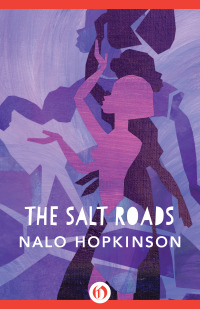Soil by Jamie Kornegay
 Monday, March 30, 2015 at 9:59AM
Monday, March 30, 2015 at 9:59AM 
Published by Simon & Schuster on March 10, 2015
Jay Mize, a young soil scientist in Mississippi who is too aggressive in his advocacy of sustainable farming methods, loses his job with the local Farm Service Agency. Jay (mockingly known as "Compost Man") is a closet survivalist who believes he needs to make his family self-sustaining. An epiphany sends Jay chasing a dream of soil-free farming. Some people are better off not having epiphanies and Jay is one of them.
Shortly after his farmland floods and his wife, Sandy, returns to the city with their son, Jay finds a dead body in a newly formed lake that was once his field. Allowing paranoia to get the better of him -- paranoia that is perhaps inspired by the county's reaction to his notorious grandfather -- Jay decides that notifying Deputy Shoals, who came by two weeks earlier in search of a missing person, would be exactly the wrong thing to do.
Shoals is the novel's other key character. He is making it his mission to take every reasonably attractive female he meets to bed ... or, more likely, to the backseat of his Mustang. He would like to add Sandy to his list of conquests. Shoals, whose vigorous sex drive is combined with the maturity level of a twelve-year-old, adds comic relief to a novel that is often darkly humorous. Soil also derives a fair amount of humor from Jay's whacky doomsday theories -- "what if someone sets loose a fleet of self-replicating nanorobots?" -- the kinds of scenarios that hardcore survivalists secretly hope for so they can get some use out of their bug-out bags.
Most of the novel focuses on the consequences of Jay's unending supply of bad decisions. It is difficult to know whether Jay is stupid or noble in his unwillingness to accept defeat. Clearly he is a bit unhinged. Despite being a scientist, his life is an "equation without logic, or else the logic of nature, which he hardly understood." I imagine some readers will dislike Soil because they dislike Jay, who displays few admirable qualities. I found him to be a sympathetic character notwithstanding his insanely poor judgment and questionable mental health. Even Shoals is easy to understand and forgive, if not to admire. Neither of the central characters have a bad heart despite their bad behavior. It is, of course, easiest to sympathize with Sandy, who has to cope with Jay and Shoals while trying to do what's best for her son.
While I wouldn't classify Soil as a thriller, Jamie Kornegay creates an atmosphere of mild tension from beginning to end. The story moves quickly but Kornegay doesn't skimp on characterization. Even minor characters (most of whom belong in the deep woods where they live) are easy to visualize. I didn't quite buy the ending, which seems a bit too easy. In hindsight, I'm not sure I buy any of Jay's actions, but Kornegay convinced me of their reality as I was reading and that's all that matters. In the end, Kornegay tells an original and entertaining story in pleasing prose, which is more than most authors manage.
RECOMMENDED



